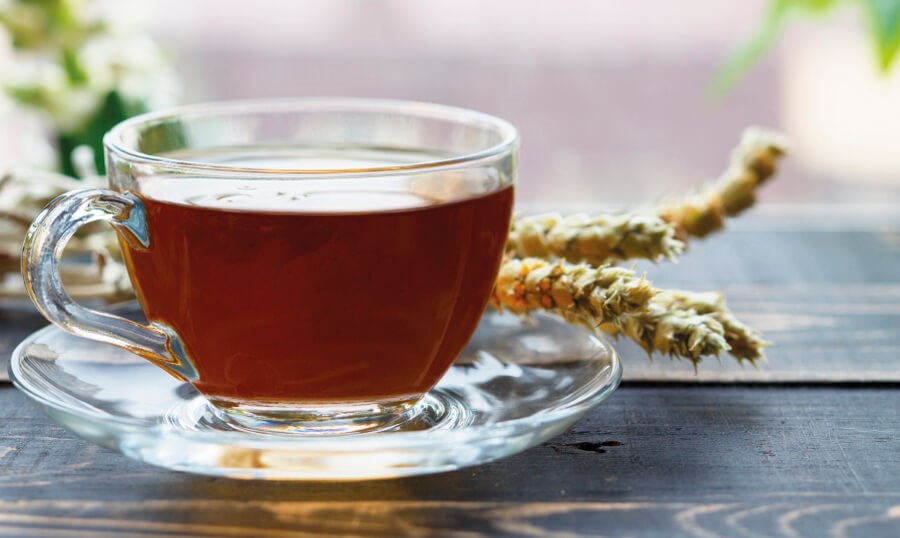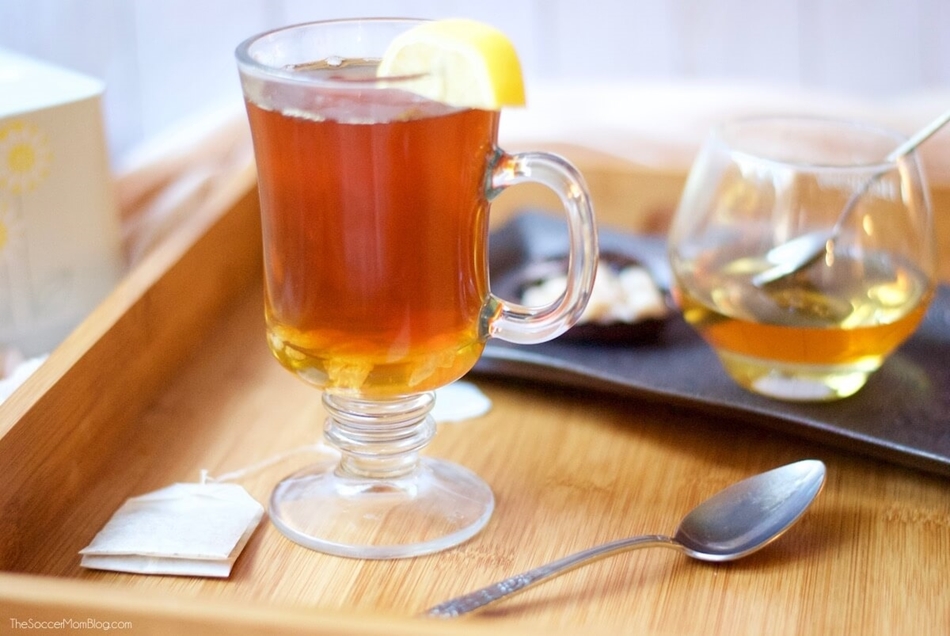Hot beverages relieve sore throats, nasal congestion, coughs, ease expectoration and assist the hydration and invigoration of the body.
Every winter there is an outbreak of viral infections, this year especially with the COVID-19 pandemic, and we suffer for days from runny nose, cough, fever, sore throat, headaches, feeling of fatigue and in case of flu or SARS-CoV-2 from pains in the muscles and joints and, frequently, bacterial cross-infections.
As we all know, there are no antibiotics or other drugs against viral infections. The viral infection will run its course. What we can do however is to reduce the severity of the symptoms and their duration.
Reduction of the severity of symptoms is important not only because we suffer less but also because our body is less stressed and therefore has more energy available to produce antibodies, an energy-intensive process, for the fight against viruses.
According to scientific research and recommendations of scientific associations, hot drinks, and especially tea, relieve us from the symptoms of viral infection and reduce their duration.
Hot beverages have the following beneficial effects during viral infections:
- Soothe a sore throat
- Relieve nasal congestion
- Ease expectoration
- Relieve cough
- Hydrate the body
- Invigorate the body.
Soothing of the sore throat. Hot beverages, and especially tea, during swallowing make the mucus that has accumulated in the throat thinner and looser, due to the high temperature, and so it can detach and advance to the digestive system, offering us relief. At the same time, with the high temperature, the blood vessels dilate, thus increasing the blood circulation in the area. More blood means more oxygen, more antibodies and more nutrients, thus reducing the recovery time of this area.
Nasal decongestion. The same effects take place in the mucus in our nose. This time with the high temperature the tea vapours – which when tea is swallowed rise to the nose - make the mucus that has accumulated thinner so that with one blow it can be completely removed. Here again there is also the beneficial effect of high temperature.
Ease of expectoration. As in the nose, the vapours, especially of the tea vapours, which enter the lungs when tea is swallowed, hydrate the secretions of the bronchi, liquefy them and this helps in their removal. The increase in temperature in the lungs significantly increases blood circulation and consequently expectoration.
Cough relief. Cough is a reflex that aims to clear the air ducts by mechanically removing anything that clogs them. By removing the mucus from the throat and nose and the expectoration produced by a hot tea, the air ducts are unclogged and thus the cough becomes softer and its frequency decreases.
Hydration. During a viral infection, our body is dehydrated due to the increase in metabolism that occurs because of the increase of our body temperature. As our metabolism increases we lose more fluids and also our breathing rate increases resulting in the removal of more water vapour. In addition to the aforementioned beneficial effects, hot beverages also offer hydration. But we should not drink caffeinated beverages such as coffee, chocolate or Ceylon tea because caffeine causes dehydration. The hydration, in addition to strengthening all our body functions, also helps to liquefy the mucus, so it is removed easier.
Invigoration of the body. Teas and other herbal infusions have a strong antioxidant effect against free radicals. There is sufficiently scientific bibliography proving that the reduction of free radicals results in the invigoration of the body and the consequent strengthening of the immune system.

Of all the hot beverages, teas have the best results in reducing the intensity and duration of the symptoms caused by viral infection mainly due to their antioxidant action. Among the many types of tea, Greek Mountain Tea has the best results for the following reasons:
(a) it has antimicrobial and anti-inflammatory action which other teas do not have;
(b) it does not contain caffeine as the majority of teas;
(c) it has a strong antioxidant effect.

















